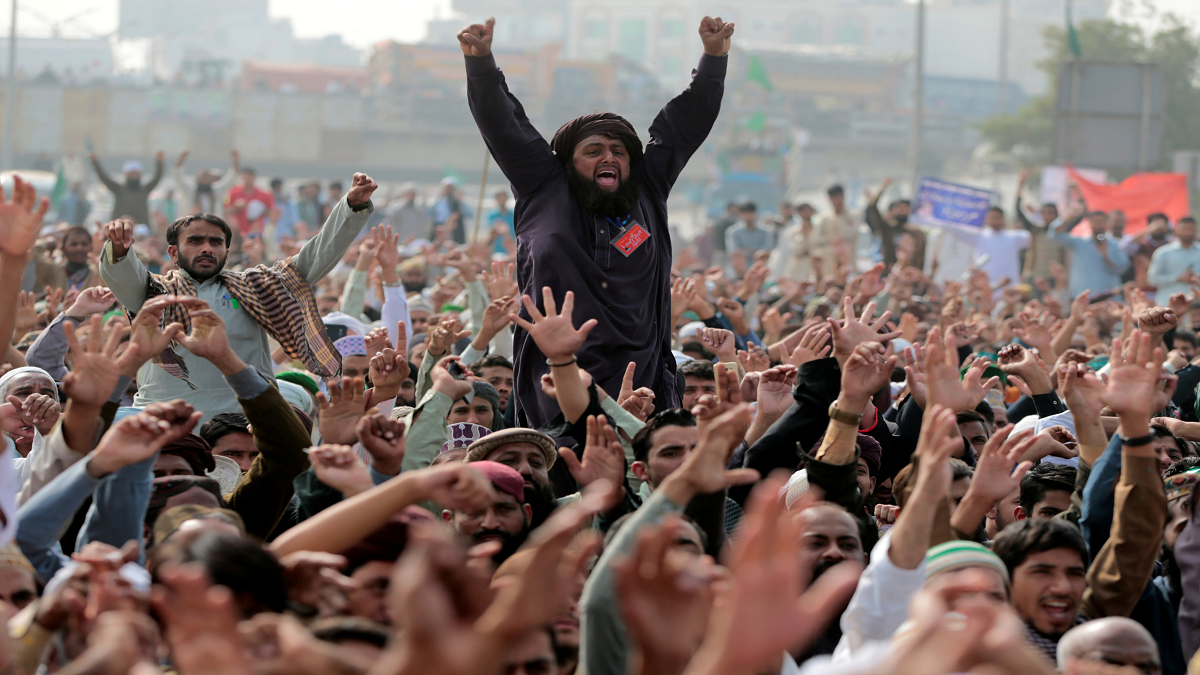In the intricate tapestry of Pakistani society, a fascinating juxtaposition has emerged: both liberalism and extremism are on the rise. At first glance, this may seem like a paradox, but a deeper exploration reveals the intricate nuances behind this simultaneous growth. In this article, we delve into the underlying factors that fuel the surge of liberalism and extremism in Pakistan, shedding light on the unique socio-political landscape of the nation.
Unraveling the Socio-economic Fabric
As the wheels of time turn, Pakistan finds itself in the midst of a remarkable demographic transition. With a burgeoning population, predominantly comprising young individuals, the nation is experiencing winds of change. Urbanization, globalization, and exposure to a diverse range of ideologies have influenced the younger generation. Embracing progressive ideas, they are challenging the conventional norms that have held sway for generations. Simultaneously, the socio-economic disparities, unemployment, and a sense of disenchantment with the existing system have fueled frustration among certain factions, pushing them toward extremist ideologies as an outlet for their grievances.
Riding the Wave of Media and Information Revolution
The digital revolution, with its vast expanse of the internet and the rise of social media, has become an unstoppable force in shaping societal dynamics. Pakistani society is no exception. The ubiquitous presence of the internet has empowered individuals to voice their opinions freely, allowing liberal ideas to proliferate. Social media platforms act as virtual forums where like-minded individuals connect, organize, and advocate for progressive causes. However, the flip side of this digital coin is the ease with which extremists can spread their propaganda, recruit vulnerable individuals, and amplify their narratives. Balancing the flow of ideas while curbing the spread of extremist ideologies remains a daunting challenge.
The Kaleidoscope of Pakistan’s Political Landscape
Pakistan’s political landscape has undergone a series of transformations in recent years, creating an environment conducive to the growth of both liberalism and extremism. Democratic reforms and increased political participation have provided a platform for liberal voices to find expression and push for transformative change. Concurrently, certain political parties or factions have adeptly exploited religious sentiments, consolidating their support base through the promotion of extremist views. These tactics intensify the polarization of political discourse within the nation.
Education and the Dual Pathways
Education has always been a potent tool in shaping the ideological fabric of any nation. In Pakistan, a unique duality exists within the education system. While mainstream educational institutions strive to instill critical thinking and pluralism, parallel religious seminaries, known as madrasas, have a more conservative focus. These madrasas have faced criticism for fostering extremism due to their narrow curriculum and limited exposure to modern ideas. Bridging this educational divide and promoting quality education that nurtures critical thinking is paramount in countering the allure of extremism.
Read More: Rights activist Zeenat Khan wins award for short film on interfaith harmony
The Clash of Tradition and Progress
Pakistan, with its rich cultural and religious heritage, grapples with a constant tug-of-war between traditional values and the forces of progress. Globalization, urbanization, and increased connectivity have opened doors to liberal ideas that challenge deep-rooted conservative norms. The rise of liberal voices advocating for women’s rights, minority rights, and freedom of expression represents a progressive shift. However, the nation is still entangled in the web of entrenched patriarchal norms, intolerance, and discrimination. This cultural clash creates fertile ground for both liberalism and extremism to coexist, each vying for dominance.
The simultaneous surge of liberalism and extremism in Pakistan represents a complex interplay of socio-economic factors, media influence, political dynamics, education, and socio-cultural norms. The rise of liberalism signifies a positive stride towards progressive values and aspirations for change, reflecting the evolving aspirations of the younger generation. At the same time, the increasing presence of extremism poses significant challenges to Pakistan’s stability and security.
To address this unique situation, a comprehensive approach is required. It necessitates promoting quality education that encourages critical thinking and pluralism, bridging the gap between mainstream institutions and religious seminaries. It calls for fostering economic opportunities, alleviating socio-economic disparities, and providing avenues for social mobility. Strengthening democratic institutions and ensuring political inclusivity are essential for channeling the voices of liberalism within the political landscape.
Moreover, addressing deeply ingrained patriarchal norms, intolerance, and discrimination is crucial. This involves promoting gender equality, empowering women, and fostering an inclusive society that respects the rights of minorities. Balancing the preservation of cultural heritage with the need for progress and openness to diverse ideas is a delicate task that requires nuanced approaches and open dialogue.
Pakistan stands at a crossroads, where the convergence of liberalism and extremism presents both challenges and opportunities. By recognizing the underlying dynamics behind these trends and adopting a holistic approach, Pakistan can navigate this complex terrain. It can harness the positive energy of liberalism to drive social progress while simultaneously working to counter the allure of extremism. Striking a delicate balance between tradition and progress will pave the way for a more inclusive, tolerant, and prosperous Pakistan in the years to come.





















